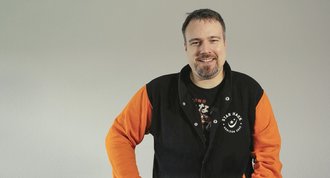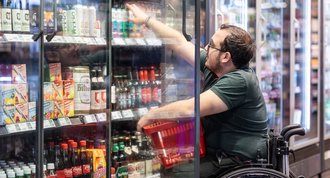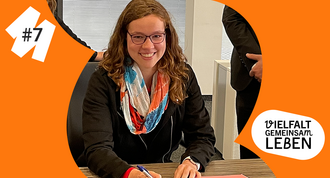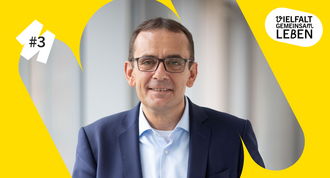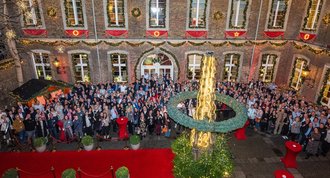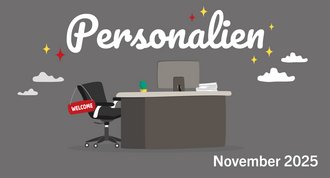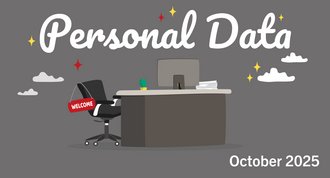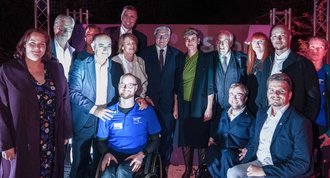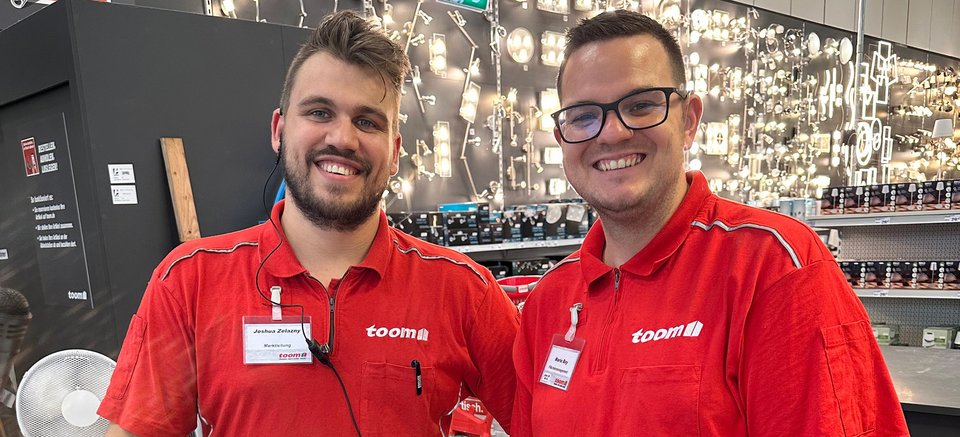
Mario Boy is hearing impaired and works as a system merchandiser in the toom building block laboratory. He also wanted to get a taste of the market for a few days - as is customary for all toom centralisers. How did that work out? How does the 30-year-old overcome barriers and resistance in his day-to-day work? We spoke to him.
From goods receiving, warehouse staff and sales assistants to salespeople, IT specialists and marketing managers: there are toom employees in every field. The day-to-day work of employees at the head office and on the shop floor in the DIY store is usually very different. This makes it all the more important that employees on both sides have an impression of each other's working day.
It is particularly important for head office staff to know the day-to-day work of their store colleagues. A few days at the store are therefore a compulsory part of the training programme. This was not the case for Mario Boy as a system merchandiser. This is because Mario is hearing impaired and would need support for his job. He told us in an interview how he was able to realise this years later at the toom Baumarkt DIY store in Villingen-Schwenningen and why it was so important to him.
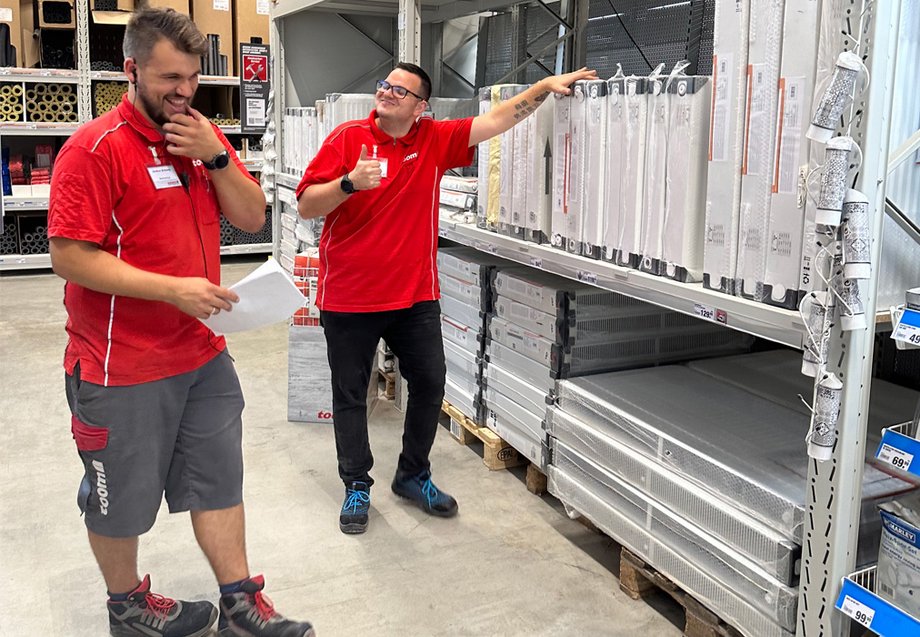 The fact that his colleague Joshua speaks sign language was helpful for Mario (right) in many situations.
The fact that his colleague Joshua speaks sign language was helpful for Mario (right) in many situations.
one: Mario, how did it come about that you wanted to gain your store experience?
Mario Boy: Normally, it's compulsory to do a few days at the market as part of your training. However, due to my hearing impairment, there are a few hurdles, which is why I didn't dare at the time. It was no longer compulsory for me. However, the building block laboratory has a lot to do with a market and I didn't know my way around. For example, without my market experience, I couldn't assess how the DIY store would handle article changes and how I could best support my colleagues.
I've been in the building block laboratory since 2019 and wanted to finally change that. To improve myself and also to be able to better support Christoph, my boss. So, together with Christoph, I approached the toom representative body for severely disabled employees and various regional sales managers (RVKLs). Fortunately, an RVKL got in touch a short time later and put me in touch with someone from Albstadt who was happy to help me after his transfer to Villingen-Schwenningen. Coincidence: the colleague - Joshua - and I already knew each other from before.
one: As a layman, can you explain to us why an accompanying person was so valuable to you in this case?
Mario Boy: Joshua only knows a few signs, but he knew from experience exactly how to deal with my impairment. The fact that he speaks some sign language was helpful in many situations. He also knows that he has to look at me when I speak so that I can read his lips and, at best, speak a little more slowly. Of course, other colleagues can do that too. But it was easier because Joshua was used to it and used it automatically.
one: What tasks did you take on in the store? Were there any parallels to your job?
Mario Boy: The building block laboratory at toom is there to prepare products from our range for the store presentation using sample layouts and shelf presentations. The range is divided into building blocks. So there is definitely a parallel to my store colleagues.
In the building block lab, I'm mainly responsible for documentation and setting up the building blocks. I also take care of the corresponding market allocation of the parts and the "exchange in place", i.e. the replacement of items in the building block with successor products or packaging updates.
During my market assignment, Joshua gave me a quick tour and then we got straight down to business. First we did the goods return. That went quite well. As the autumn check is coming up soon, when all the modules will be checked, we checked a few modules afterwards. I thought it would be quick - it might take an hour - but nope! It took us a whole day. What I hadn't considered in my calculations: There are no customers in the building block lab. Joshua and I were on the floor together with just one other colleague. So most of the time, we were there exclusively for the customers. That's super exhausting, you underestimate it!
„I didn't want to give customers the wrong advice, so I always asked them to wait for my colleague as it was 'my first day'. Most of them accepted that and waited. But of course, there are always people who don't and become unfriendly.“ Mario Boy
Apart from that, I was very surprised at how much I was allowed to do. Joshua looked over my shoulder, but I got stuck in. I really enjoyed that.
one: What were the highlights of the market assignment? What did you like best, what did you like least?
Mario Boy: My favourite thing was that Joshua was my market companion and he let me do everything. I was allowed to do a lot more myself than I had imagined. For example, I was allowed to cut carpets and turf, cut wood, drive the electric pallet truck and use it to pick up goods from the shelves. Joshua was there at all times, motivating me and giving me tips on how to do it best. I really liked the fact that he had so much confidence in me.
What didn't I like? What can I tell you? All in all, I thought the market assignment was just great.
one: Did your job give you a different perspective on the activities or the process in the store?
Mario Boy: As we document building blocks in the building block laboratory or do "exchange on site", we are close to the market. We mostly work "visually" - in the store, it's reality. That's why I paid attention on site to where there are problems, what helps the colleagues and what doesn't, and also what we can do better for the market.
one: What insights did you take away from the market assignment?
Mario Boy: As I said, it's quite simple in the building block lab. We finish the building block, then it looks great - that's it.
Not so in the market. I was almost shocked at how it looks "in real life". The customers really make a mess - that surprised me. (laughs) It makes sense, but I never thought about it. I will definitely take that with me when I plan the next module. The reality is in the market and a few things have to be factored in.
In addition, unlike me, my store colleagues don't have flexible working hours. They start work at 8 o'clock. It's really getting used to working regular hours... And if someone is ill, someone has to stay longer to be there for the customers. So I have to say, the store employees really have it tougher when it comes to that. I found it amazing how different Joshua's and my habits and attitudes are.
one: Did you have difficulties with anything because of your impairment? Were you unable to do part of the job?
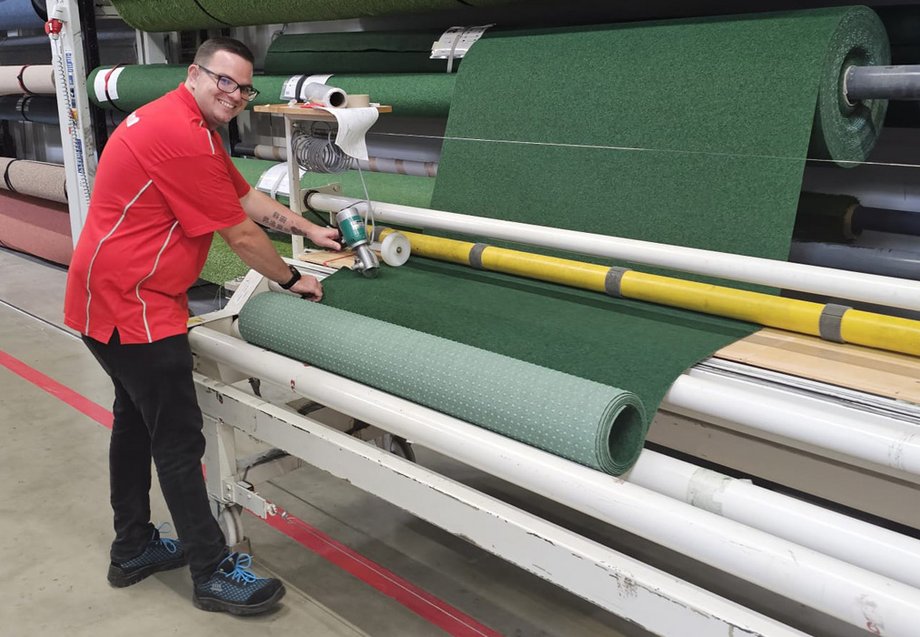 Mario was allowed to do more at the market than he had imagined - for example, cutting carpets and turf.
Mario Boy: My biggest disadvantage in such cases is communication. One example: When customers come in and just ask "Where can I find...?" I'm completely out of it. Firstly because I don't understand anything, and secondly because I don't know enough about the market. So before I say the wrong thing, I'd rather leave it to Joshua, who took care of all the questions.
Mario was allowed to do more at the market than he had imagined - for example, cutting carpets and turf.
Mario Boy: My biggest disadvantage in such cases is communication. One example: When customers come in and just ask "Where can I find...?" I'm completely out of it. Firstly because I don't understand anything, and secondly because I don't know enough about the market. So before I say the wrong thing, I'd rather leave it to Joshua, who took care of all the questions.
I also quickly lose my self-confidence if I have to say to customers every time, "Could you repeat that again, unfortunately I can't understand you very well because of my hearing impairment." My counterpart often reacts annoyed or becomes unfriendly.
An additional difficulty factor: the people of Baden-Württemberg have a completely different dialect! This is much more difficult for me to lip-read. This aspect, plus the fact that I didn't know my way around and didn't want to give customers the wrong advice, meant that I always asked to wait for my colleague, as it was "my first day". Most people accepted this and waited. But of course, there are always people who don't and become unfriendly. Mainly because they perhaps didn't understand me well acoustically and noticed my impairment. I think that made it a bit more difficult for me. Nevertheless, I wouldn't want to miss my time at the market. I gained valuable experience and was also pleased to see Joshua again.

